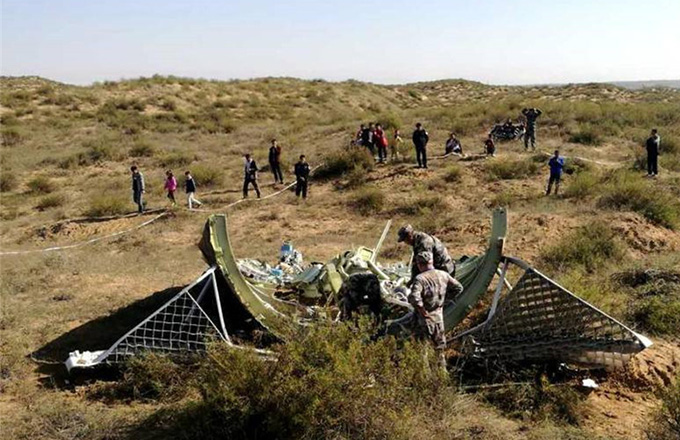Death threat looms large in hepatitis C affected village
Sixty-year-old Wang Kanliang sat with his wife Ding Caifeng in the courtyard built near a fork in the road not far away from the Qinling mountain range.
The day was rainy, dark and chilly and the old couple occasionally exchanged words when staring at the layers of land and foliage on the mountains drenched by drizzle.
The old couple have spent their life farming in Nanwan Village, Shaanxi Province; however, nowadays, they can seldom work due to being diagnosed with liver cirrhosis.
Last month, Ding was admitted to hospital after she started to spit blood, but she insisted on returning home, after lying in the ward for no more than two weeks, because of concern about the mounting expenditure running into tens of thousands of yuan, a huge cost for the poor family.
More than once, Ding had spit blood. Worrying she might not survive long, the family built a tomb without her knowledge when she was hospitalized for the same reason as early as March this year.
"The diagnosis and medicine costs have eaten up the family savings," said Wang. "We cannot further involve our children in paying the bills for our illness; therefore, we'll just have to let the disease take our lives."
A few miles away from Wang's family, a complete new tomb was spruced up among others in a highland region, overlooking the traumatized village affected by the hepatitis C virus that has forced a generation of farmers -- feeble and fragile -- to face premature death.
The spread of Hepatitis C in the village started from the 1970s into the 1980s when the destitute farmers in the desolate land sold blood to gain a bit more income. An organizer touted the blood-selling business among villagers who were later taken to cities extending from Shaanxi to Gansu in the far west of China.
"I can still remember the day when people from the village flocked to the blood stations talking and laughing en route since it was a rare opportunity for us to see the world outside the village," Ding recalled.
Before the repeated visits to the blood transfer centers, Wang and Ding were energetic and robust. They were happy to earn the quick-money -- 36 yuan -- every time when selling 30ml of blood.
Apart from the commissions, the villagers could get the money and presents, such as, bread and quilts, for doing nothing more than rolling up their sleeves. The easy rewards enticed them to repeatedly sell their blood without considerations of hygiene and safety.
However, in the 1990s when Ding set out to Tianshui, Gansu Province again to sell her blood, her physical report showed her to be Hepatitis C positive, an illness, and this was shared by many Nanwan villagers. Then, the blood-selling business long prevailing there had come to an end.
The blood selling business was divided into whole blood and plasma, which required the operator to extract the plasma from the blood and re-inject the haemoproteins (such as haemoglobin) back into the blood vessels of the sellers.
The rampant blood selling business did not abate until the 1990s when a certain number of villagers tested Hepatitis C positive.
"Right before the 1990s, the blood transfer stations could only exam viruses such as HIV and Hepatitis B, and there was a lack of medical technology to identify Hepatitis C carriers," said Wang Jianjun, director of the Center for Disease Control and Prevention (CDCP) of Shangzhou District, Shangluo City, Shaanxi Province.
Research conducted by the CDCP in Shangzhou District, where Nanwan Village is located, showed 40 out of 47 respondents involved in the blood selling experience, ranging in age from 43 to 72, had contracted Hepatitis C.
The infection probably came from the needles used to collect blood. And the injection of haemoproteins also likely carried a high risk of contamination.
Huang Shaojun, deputy director of the Health and Family Planning Bureau in Shangzhou District, said patients were encouraged to receive appropriate treatment and their medical costs would be reimbursed in accordance with pertinent regulations.
Blood contamination, other than the transmission from mothers to children and sexual intercourse, is the major cause of the spread of Hepatitis C, with syndromes of fever and dysfunctional digestive tracts and livers.
In the nascent stage, Hepatitis C is highly possible to be cured through use of ribavirin and interferon, said Chen Yanwei, a staff member from the CDCP in Shangzhou District. People should not be panic about their liver illness, he advised.























